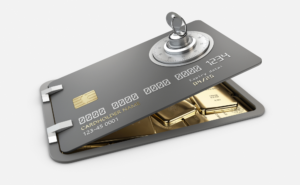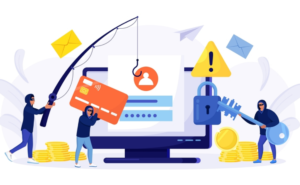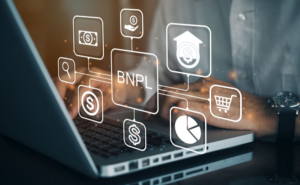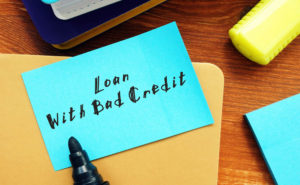Personal Loan vs Credit Card: What Is The Difference?
People’s most common financial products to pay off their debts or buy new things depending on their needs are personal loans and credit cards.
These two ways are the best fit for consolidating your debts or if you want to borrow money. Both products are tried and tested methods for lending money. However, it becomes difficult for people to decide which to opt for when they need the money to meet their expenses.
Everything then boils down to a personal loan vs credit card. How would you know the differences between the two when financial products give you an easy and agile inflow of the needed amount?
Let’s start from the very basics first;
Table of Contents
What Is A Personal Loan?
Personal loans are fixed financial products that mean you get a fixed amount of money paid back in agreed installments in a fixed period. Typically, people apply for personal loans when they want to make bigger purchases.
There are different companies, and the financial institute easily offers secured and unsecured loans if you have a good credit history. They are a type of credit on installment. You receive the amount one time as cash and repay it by the predetermined time with a certain amount of interest rate decided in the terms & conditions.
Personal loans by no means are revolving credit. Once you are done paying your installments, you are done. Neither you receive any money, nor do you have to pay it after your last installment.
You might be wondering what interest rate you have to pay over a personal loan. According to FED – Federal Reserve System, 9.6% is the average interest rate one has to pay in 24 months on personal loans.
However, you can also choose your monthly installments and term period that best fits your budget. But keep in mind that the interest rate will be based on your creditworthiness, the size of the loan, and the term length in which you repay the loan.
Personal loans also come with additional charges like any other financial product you can think of. So if you are planning to apply for a loan, brace yourself to experience administrative, origination, or penalty fee if you pay it back before the term ends.
You also don’t get any rewards on personal loans. The best flex of a personal loan enables you to make bigger buys and spread them out over a certain period with a fixed monthly installment. Nevertheless, it does not come as cheap as you think.
What Is A Credit Card?
A credit card is a revolving type of credit that you get to buy what you want and pays the debt off, possibly with a balance transfer. The name credit card itself suggests what kind of entity you will get, a card from which you spend money, pay it back and then repeat the entire process. The credit line you opened will remain open until you close it.
You get a credit extension as a credit limit or credit line provided by your card issuers, credit unions, or banks. These credit lines are based on different factors, mainly your credit score, affordability, and your yearly income. These credit lines vary from a few hundred to thousands of dollars.
A statement is sent to the card user on each billing cycle where all the expenses you have made are highlighted with their respective due dates and interest of risk. However, if you find any suspicious activity on your statement, you can also file a credit card dispute with the card issuer or the merchant directly.
The current interest rate charged on credit cards is 16.28% on average, as stated by the Federal Reserve System – Fed. Apart from paying an interest rate, you will also experience different charges, including foreign transactions, late payments, annual, advance cash, and balance transfer charges.
Nevertheless, credit cards get the leverage of grace periods. The grace period allows you to pay your interest-free balance—the period lasts 21 days from the billing cycle. After the grace period ends, the remaining balance will get charged with additional interest charges.
Unlike personal loans, you get rewards by using credit cards. Reward programs available on your card can get you miles or point on daily shopping and even cash back in some cases. On top of these rewards, you can also get a promotional 0% APR. It means you can buy or pay your debts interest-free for 20 months.
Personal Loan vs Credit Card
The major difference between the two credit types is one revolves, and the other is a one-time payment. In a personal loan, you are given a lump sum amount, whereas, in a credit card, you are provided with a credit line to spend up to, and the billing cycle keeps repeating until you get it closed.
The table below summarizes the differences between the two.
| Credit Card | Personal Loan |
| It provides a revolving credit. | It provides a one-time credit. |
| It charges higher interest rates. | It charges lower interest rates. |
| It offers many rewards programs. | It doesn’t offer any rewards program. |
| Repayments are done by the end of each month. | It is paid back in installments. |
| It does have a due date but comes with a grace period. | It has a fixed date to pay off the debt. |
| It is a secured credit type. | It can be a secured or unsecured credit type. |
| It is best when you are planning for a short-term repayment plan. | It is best when you are planning for a long-term repayment plan. |
| It doesn’t offer fixed monthly payments, and the monthly payments depend on how much you spend. | It offers fixed monthly payments. |
| It charges late fees, over-limit fees, annual fees, foreign transaction fees, etc. | It charges a late fee, administrative fee, the penalty fee, etc. |
| It can come with a promotional 0% APR. |
Conclusion
Getting a credit card is very convenient for your daily purchases, such as dining out, grocery shopping, etc. You also get rewarded for these purchases. However, it can easily drag you into debt if you don’t use it responsibly.
It will also hurt your personal credit profile, making it hard for you to apply for any other kind of loan. Likewise, personal loans can do the same as credit cards do. You will end up in a really bad financial state if you take more of your budget than you can afford.
It would be best to do extensive homework on all the available options as financial products to lift your financial constraints before deciding whether a personal loan or credit card would do best for you. It would be best to compare so many things, from fees to charges to how qualified you are and the interest rates you have to pay overtime with each.
Eventually, if done properly, this research helps you determine which form of credit from a personal loan vs. a credit card would work better for you.






